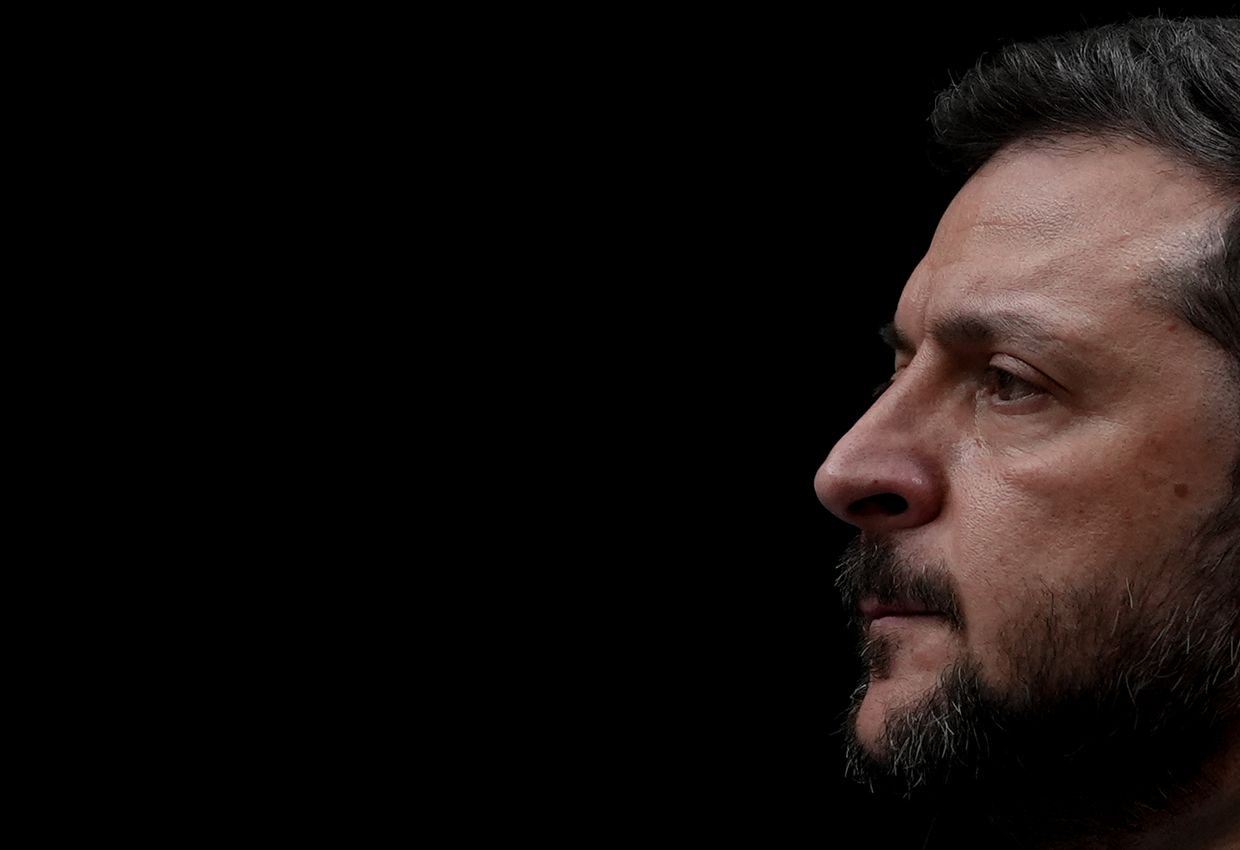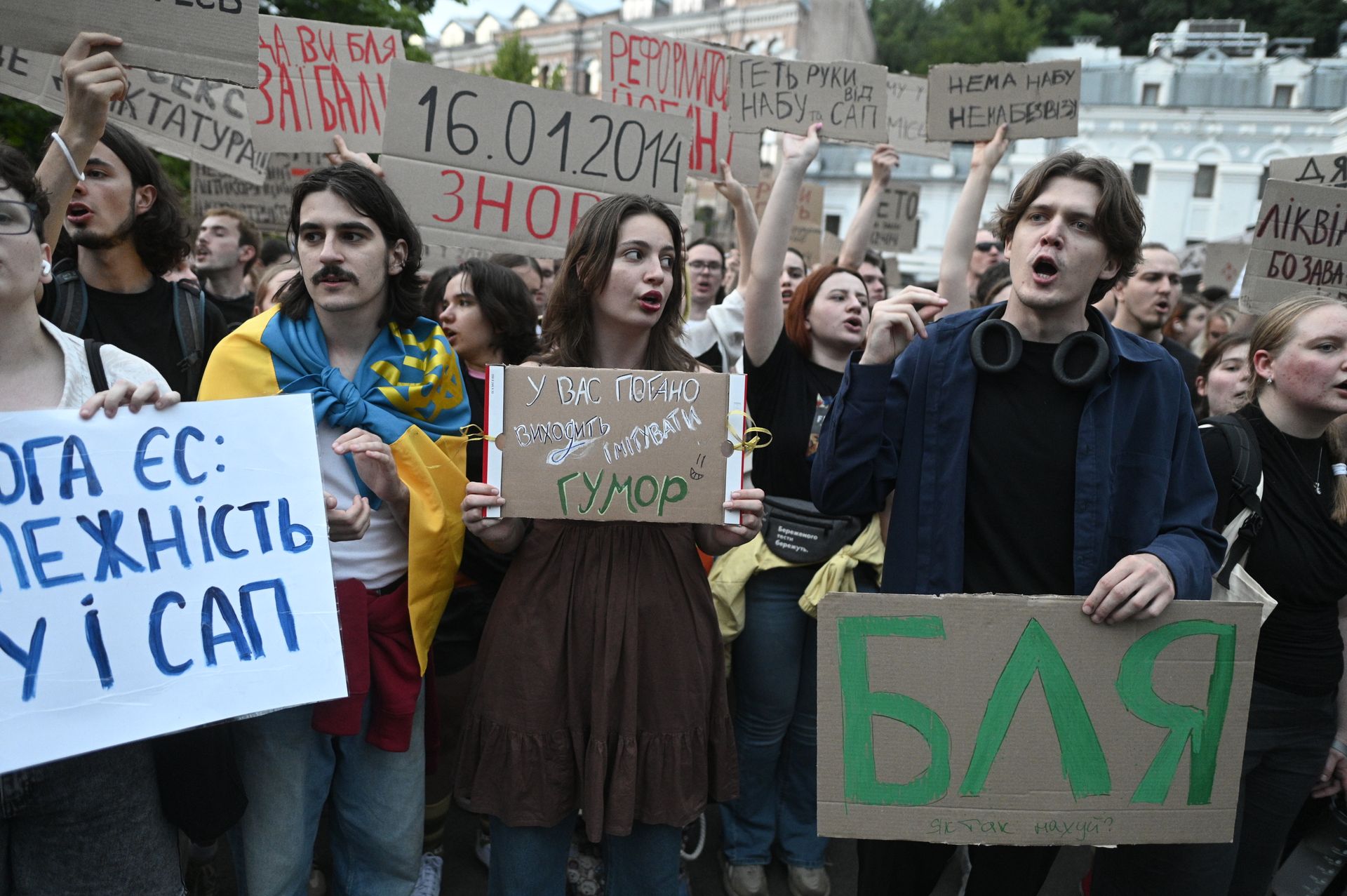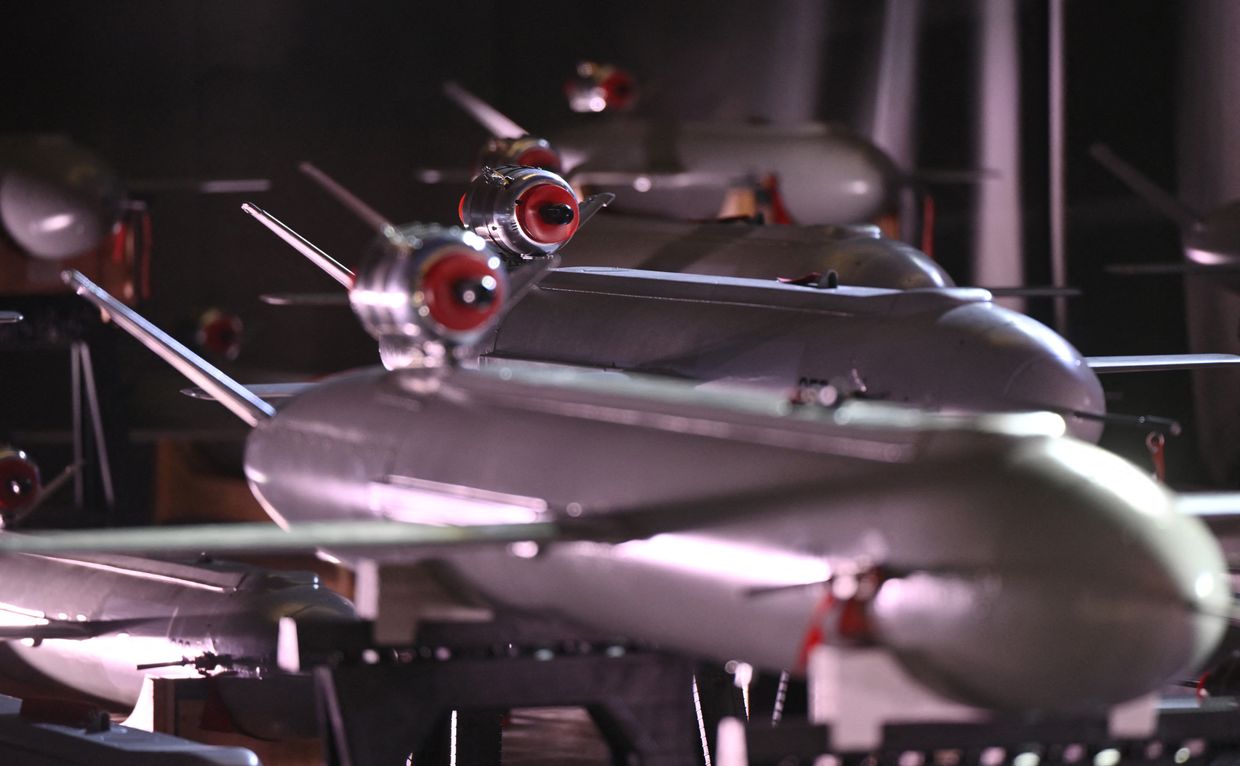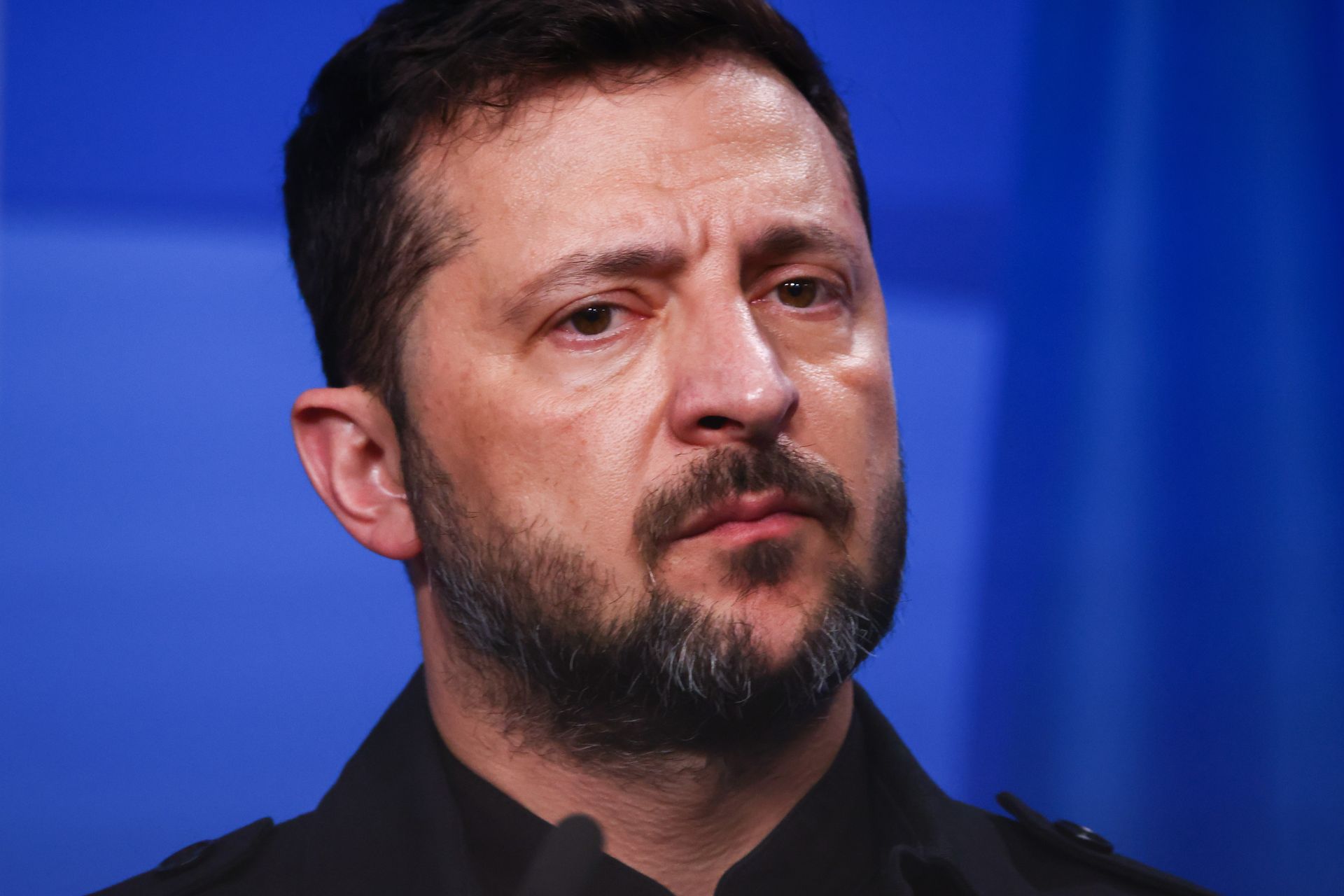Ukraine war latest: Russian troops enter Pokrovsk, Ukrainian 'search and destroy' operation ongoing

Key developments on July 22:
- Russian troops enter Pokrovsk, Ukrainian 'search and destroy' operation ongoing
- Zelensky appoints delegation for peace talks with Russia in Istanbul, signals new POW swaps
- Russia recruits children into drone programs through games, education incentives, media reports
- US NATO ambassador warns China over 'subsidizing' Russia's war in Ukraine
- Russia to spend $1.1 trillion preparing for 'upcoming large-scale war,' Ukraine's intel chief says
Russian troops have entered the front-line city of Pokrovsk in Donetsk Oblast, the open-source battlefield monitoring group DeepState and soldiers on the ground said on July 22.
Pokrovsk, situated around 67 kilometers (41 miles) northwest of Russian-occupied Donetsk, has emerged as one of the fiercest hotspots in the Kremlin's ongoing offensive in eastern Ukraine.
Speaking to the Kyiv Independent on condition of anonymity, a member of a Ukrainian drone team working out of Pokrovsk reported that Russian soldiers had made it into the city limits, though it wasn't clear if they had managed to dig in.
According to DeepState, Russian forces managed to penetrate the city from the direction of Zvirove a few days earlier after exploiting weakened Ukrainian infantry positions and inaccurate situational reporting.
The breach reportedly prompted an urgent response from Ukrainian units to prevent the situation "from spiraling into disaster."
"Russian units attempted to entrench themselves and gain control over Defenders of Ukraine Street," DeepState said. "Some of them have been killed, others are still being hunted. The search and destruction of these groups is still ongoing."
The group noted that Ukrainian forces suffered casualties in the ongoing cleanup operation, with incidents of friendly fire reported due to a lack of clear intelligence on the Russian troops' movements and locations.
DeepState warned that reports on such infiltration attempts should be approached with caution and confirmed data.
Ukrainian Commander-in-Chief Oleksandr Syrskyi said on July 18 that Ukrainian troops were "steadfastly" defending Pokrovsk from repeated Russian infantry assaults. In June, Syrskyi described the embattled city as "the hottest spot along the entire 1,200-kilometer front line."
According to Syrskyi, Russian troops continue to rely on small infantry groups to probe Ukraine's defenses, but have so far failed to gain control of the city.
He warned that Russian troops are attempting to sever logistics routes from the northern city of Dobropillia and noted that Russian forces had massed over 110,000 troops in the area by early summer.
Pokrovsk remains a strategic target for Russia as it seeks to advance further into Donetsk Oblast and potentially threaten neighboring Dnipropetrovsk Oblast.
Zelensky appoints delegation for peace talks with Russia in Istanbul, signals new POW swaps
President Volodymyr Zelensky has appointed a Ukrainian delegation to lead the July 23 negotiations with Russia in Istanbul and signaled upcoming prisoner exchanges based on previous talks.
The delegation will be led by National Security and Defense Council Secretary Rustem Umerov and include representatives from Ukraine's military intelligence, the Foreign Ministry, and the Presidential Office.
"I held a meeting on the outcomes Ukraine needs from the negotiation efforts," Zelensky said on July 22. "Our position is fully transparent. Ukraine never wanted this war, and it is Russia that must end the war that it started."
Umerov reported on the implementation of agreements from the second round of talks held with Russia in Istanbul and confirmed that preparations are underway for a third meeting. Zelensky emphasized Ukraine's readiness to work "as productively as possible" in pursuit of concrete outcomes.
"We expect several rounds of exchanges to be carried out in accordance with the agreements reached at the second meeting in Istanbul," Zelensky said.
Andriy Yermak, head of the Presidential Office, also briefed Zelensky on Ukraine's coordination with diplomatic partners in Europe and the United States in support of the talks.
Zelensky said the agenda of the upcoming round of peace talks would focus on the repatriation of prisoners of war and abducted Ukrainian children, and the framework for a future meeting involving national leaders.
The last direct meeting between Ukrainian and Russian officials took place on June 2, following an earlier round on May 16 after more than three years without any formal negotiations.
Kremlin spokesperson Dmitry Peskov confirmed Moscow's willingness to hold a third round of talks but claimed that a final date had not yet been set.
Peskov added that there would be "no changes" to Russia's delegation, which remains headed by Russian President Vladimir Putin's aide, Vladimir Medinsky. Putin himself has declined to participate directly.
Earlier in July, Turkish President Recep Tayyip Erdogan said Ankara is working to organize a Zelensky-Putin meeting, potentially with the involvement of U.S. President Donald Trump.
While Ukraine has proposed an unconditional 30-day ceasefire, a position backed by Washington, Russia has rejected the offer and continues to state its war aims will be achieved "on the battlefield."
Russia recruits children into drone programs through games, education incentives, media reports
Russian schoolchildren are being funneled into drone development and other military programs under the guise of educational initiatives, according to an investigation by Russian independent outlet the Insider published on July 22.
The reporting reveals how children are recruited through seemingly harmless video games, state-run competitions, and promises of academic and career advancement — all orchestrated by Russia's Defense Ministry and sanctioned at the highest levels of government.
At the core of the campaign is Berloga, a video game launched in 2022 and personally approved by Russian President Vladimir Putin. The game appeals to high school students by offering up to 10 bonus points on Russia's national exams to top players.
Those who excel in Berloga are invited to join higher-level competitions such as Big Challenges, where students work directly with defense contractors.
Participants told the Insider they were trained to obscure the military purposes of their projects by inventing civilian applications when presenting to judges.
"When we were defending (our project in the final), we were forbidden to say that it was needed for the war," one student told the outlet. "A project must always have a dual purpose, especially when you're a school student."
One 13-year-old reportedly trained Russian soldiers in drone operation at a state facility.
Russia's push to militarize youth also includes hands-on roles in drone production. State propaganda videos earlier showed teenagers assembling Geran-2 drones — Russia's local variant of the Shahed-type strike drones — at the Alabuga industrial complex in Tatarstan.
Russia started widely using Shahed drones in late 2022. Their affordability and simple production have made them a key part of Moscow's air assault tactics.
In June alone, Russia launched over 5,300 Shahed drones, and Ukraine suffered the largest recorded aerial assault on July 9, with 741 drones and missiles launched in a single day.
Germany's Maj. Gen. Christian Freuding, head of Ukraine policy at the German Defense Ministry, warned on July 19 that Moscow aims to scale its drone capability to launch as many as 2,000 drones a night.
US NATO ambassador warns China over 'subsidizing' Russia's war in Ukraine
U.S. Ambassador to NATO Matthew Whitaker warned on July 22 that China may face consequences for supporting Russia's war in Ukraine if Moscow rejects a peace settlement.
"I think they need to be called out for their subsidizing this killing that is happening on the battlefields in Ukraine," Whitaker told Fox Business.
"China thinks they're fighting a proxy war through Russia. They want to keep the U.S. and our allies occupied with this war, so that we can't focus on our other strategic challenges."
The remarks follow U.S. President Donald Trump's July 14 announcement that the U.S. will impose "severe" secondary tariffs on Russia unless it agrees to end the war within 50 days.
"The secondary sanctions are going to be significant," Whitaker said. "They're going to hit countries that are buying Russian oil, whether that's China, India, or Brazil."
The U.S. strategy seeks to pressure Russia by curbing its oil and gas income, which accounts for roughly one-third of federal revenue and remains a vital source of funding for its war effort.
If a third country like China keeps buying Russian oil, exports to the U.S. could face a further 100% tariff, significantly raising prices for American consumers and squeezing Chinese exporters.
China remains one of Russia's closest wartime economic partners. It is Moscow's top crude oil buyer and a major supplier of dual-use goods used in Russia's defense sector.
The South China Morning Post reported earlier this month that Chinese Foreign Minister Wang Yi told EU foreign policy chief Kaja Kallas that China "cannot afford" for Russia to lose the war in Ukraine, citing unnamed sources familiar with the exchange.
Ukraine has raised alarms over Beijing's alignment with Moscow. President Volodymyr Zelensky has repeatedly warned of China's role in prolonging the war and accused it of siding with the Kremlin.
Russian President Vladimir Putin is expected to visit China in September for the Shanghai Cooperation Organization summit, where he will meet Chinese leader Xi Jinping.
Russia to spend $1.1 trillion preparing for 'upcoming large-scale war,' Ukraine's intel chief says
Russia plans to spend around $1.1 trillion on rearmament over the next 11 years in preparation for a potential large-scale war, Ukraine's military intelligence chief Kyrylo Budanov said on July 22.
Moscow has launched its most ambitious weapons program since the collapse of the Soviet Union, according to Budanov. Russia is reportedly mobilizing all sectors of society to support its military buildup.
"There is a total mobilization of politics, economy, and society of the Russian Federation to be ready for the upcoming large-scale war," Budanov said during the annual meeting of Ukrainian ambassadors.
As part of this reform, Russia has already created two new military districts — Moscow and Leningrad — and is preparing to form additional divisions and military units. Budanov said the Kremlin's goal is not just regional domination but a reshaping of the global order.
"Russia seeks to disrupt the current security and economic order," he added. "For this purpose, Moscow is building up its presence in Africa, primarily using its proxy forces."
Budanov also warned that Russia is conducting hybrid operations abroad, including cyberattacks and disinformation campaigns, aimed at undermining democracies.
"Moscow's goal is to impose on countries its own vision of the future world order, where 'big' states, primarily the Russian Federation, have full power, a monopoly on all critical resources and decide the fate of the world in a closed circle," Budanov said.
His comments follow a growing number of warnings from Western intelligence services about Russia's long-term military buildup. Last year, German intelligence chief Bruno Kahl said that Moscow will have the military capabilities to attack NATO by 2030.
Russia's defense spending has already overtaken that of all European countries combined. In 2024, its military budget surged by 42% to $462 billion, surpassing Europe's collective defense expenditure of $457 billion, according to the International Institute for Strategic Studies.
Kremlin spokesperson Dmitry Peskov said on April 30 that Russia is prepared to scale up its war effort to levels last seen in World War II, claiming "millions" of civilians are supporting the military by donating supplies and equipment.
Note from the author:
Ukraine War Latest is put together by the Kyiv Independent news desk team, who keep you informed 24 hours a day, seven days a week. If you value our work and want to ensure we have the resources to continue, join the Kyiv Independent community.















